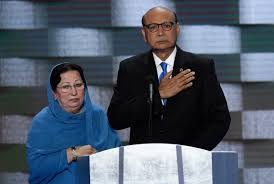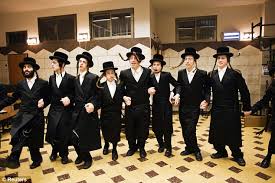Some American journalists assigned to the political beat are having a hard time. Their dilemma is named Donald Trump, a man they don’t feel they can cover objectively.
Those troubled are reporters with a liberal bent, and that, of course, means most of the profession. The vast majority of mainstream print and electronic media personnel are well entrenched on the left end of the political spectrum. To be sure, one needn’t be a social or political liberal to regard the Republican presidential candidate with concern – many in Mr. T.’s own party are distancing themselves from him – but “progressive” citizens have a particular revulsion for the controversial candidate.
And so, while the intrepid reporters soldier on in the quest for fairness, impartiality and objectivity, they are finding it hard to maintain their professional standards, or even the façade of neutrality.
Jim Rutenberg, the New York Times’ “media columnist,” lamented his and his colleagues’ predicament.
“If you’re a working journalist,” he wrote, “and you believe that Donald J. Trump is a demagogue playing to the nation’s worst racist and nationalistic tendencies, that he cozies up to anti-American dictators and that he would be dangerous with control of the United States nuclear codes… you have to throw out the textbook American journalism has been using for the better part of the past half-century, if not longer, and approach it in a way you’ve never approached anything in your career.”
“You would move closer,” he continued, “than you’ve ever been to being oppositional. That’s uncomfortable and uncharted territory for every mainstream, nonopinion journalist I’ve ever known, and by normal standards, untenable.”
Mr. Rutenberg’s honest confession of discomfort is commendable. But it’s also somewhat amusing, because, while Mr. Trump may be an outsize (one might even say yuuuge!) challenge to the media’s objectivity, the notion itself of journalistic impartiality is more veneer than substance. There are other fairness challenges that reporters routinely face and fail.
In fact, Donald Trump doesn’t really pose so great a trial for reporters. Even if they regard him as dangerous, his words have famously spoken for themselves; all that the media has to do is quote him. He’s not a very guarded or subtle person; he says very much what he means. So there is no need, and should be no temptation, for any journalist to treat him any differently than anyone else. Just share what the guy says. That’s enough.
The greater challenge to idealistic members of the media is the need to recognize and confront their broader biases when it comes to other subjects. Like, say, religion.
Fully 91% of those who work at national news organizations, according to a Pew survey, say they don’t consider it necessary to believe in G-d to be moral. Now, that doesn’t necessarily mean that those respondents disdain religious people or institutions, but it does raise the possibility, maybe even the likelihood, that they may harbor at least some subtle bias regarding religious believers or their ideals.
This column last week noted one recent example. No major media news report (and, for that matter, no major media opinion columnist) saw fit, when reporting on Mrs. Ghazala Khan’s decision not to speak, as her husband did, at the Democratic National Convention, to note some traditional religions’ concept of modesty. The idea that a woman might consider it inappropriate to speak before men is simply beyond the imaginings of most reporters. Were they forced to confront it, they would likely dismiss it as backward, oppressive or even immoral. Olam hafuch ra’isi.
And then there are the general Jewish media, which are transparently prejudiced against Orthodox Jews, at least chareidi ones, a fact well evidenced both in their choices of what stories about the “ultra-Orthodox” (a pejorative phrase itself) to cover or to ignore and in the tone of chareidi-world stories they consider newsworthy. That isn’t surprising; most of their reporters and columnists are non-Orthodox Jews, and they surely shlep their personal baggage to their keyboards – whether they are aware of it or not. As the writer William Saletan once wisely observed: “There’s a word for bias you can’t see: yours.”
The not-so-secret “secret” here, which applies to both the general Jewish media and their non-Jewish counterparts, is that reporters, despite their imaginings of themselves as objective, are human. And, as such, they are just as biased and close-minded as any other mortals. So, rather than wring their hands over how to cover Donald Trump, they would do better to consider the possibility that some more subtle, hence more troublesome, biases inform their reportage of… other things.
© 2016 Hamodia





